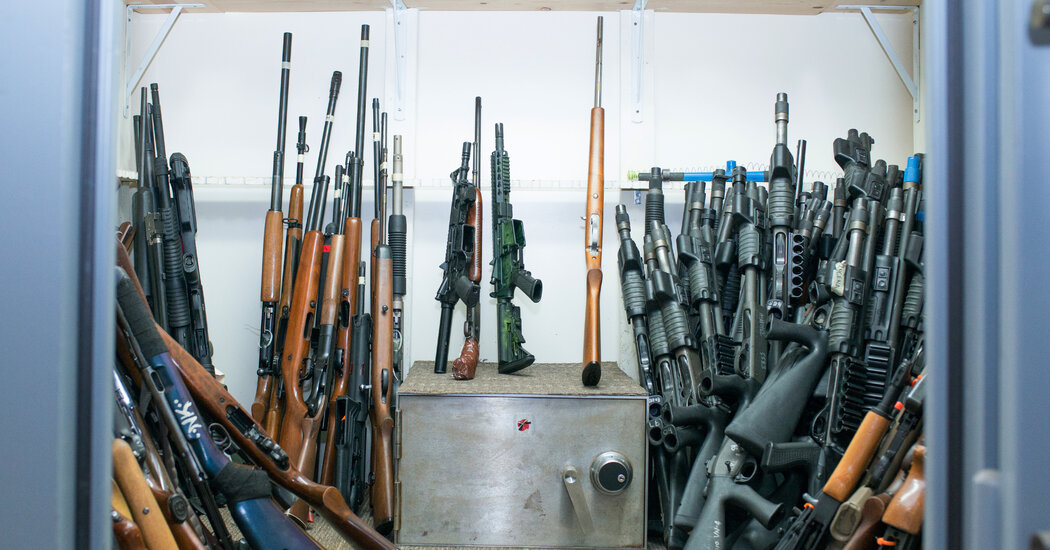Communities across the U.S. are fueling a secondary arms market by giving seized and surrendered guns to disposal services that destroy one part and resell the rest.
When Flint, Mich., announced in September that 68 assault weapons collected in a gun buyback would be incinerated, the city cited its policy of never reselling firearms.
“Gun violence continues to cause enormous grief and trauma,” said Mayor Sheldon Neeley. “I will not allow our city government to profit from our community’s pain by reselling weapons that can be turned against Flint residents.”
But Flint’s guns were not going to be melted down. Instead, they made their way to a private company that has collected millions of dollars taking firearms from police agencies, destroying a single piece of each weapon stamped with the serial number and selling the rest as nearly complete gun kits. Buyers online can easily replace what’s missing and reconstitute the weapon.
Hundreds of towns and cities have turned to a growing industry that offers to destroy guns used in crimes, surrendered in buybacks or replaced by police force upgrades. But these communities are in fact fueling a secondary arms market, where weapons slated for destruction are recycled into civilian hands, often with no background check required, according to interviews and a review of gun disposal contracts, patent records and online listings for firearms parts.



Buybacks don’t make a lot of sense when the people turning in their guns can just use the money to buy new ones. May as well cut out the middleman and just give money directly to gun manufacturers.
I kinda doubt many are doing that, the prices buy backs offer are usually ridiculously low: They’d be financially better off just trading the gun, doing a private sale, or illegally selling it for even more to a convicted felon on the black market.
If buyback programs really wanted to get guns off the street, they’d pay more money and the process that occurs after the buyback would be transparent and verifiable.
What they actually seem to be are a mix of shady profiteering (like mentioned in the article above) or PR feel-good projects that allow politicians to act like they’re actually doing something to fix the problem, when the reality is, it’s a band-aid at best and profiteering off of undermining programs meant to reduce gun violence.
This assumes nobody has anything to do with their money other than spend it on guns.
It’s an exaggeration, but here’s something that’s not.
There’s demonstrably a big market for guns in the US. A certain number of gun sales will happen every year. Used guns reduce the demand for new guns, thus reducing the money gun manufacturers can make. By destroying surrendered guns rather than selling them, buyback programs are choosing not to let the surrendered guns satisfy part of the demand for guns, thus increasing the demand for new guns and thus the revenue of gun makers.
Buyback programs can reduce the number of guns in specific communities, but the number of people nationwide who have guns is limited only by the number of people who want guns and have legal access to them, not the availability of guns for purchase. In other words, the usefulness of a buyback program is largely predicted on the discredited theory of supply-side economics.